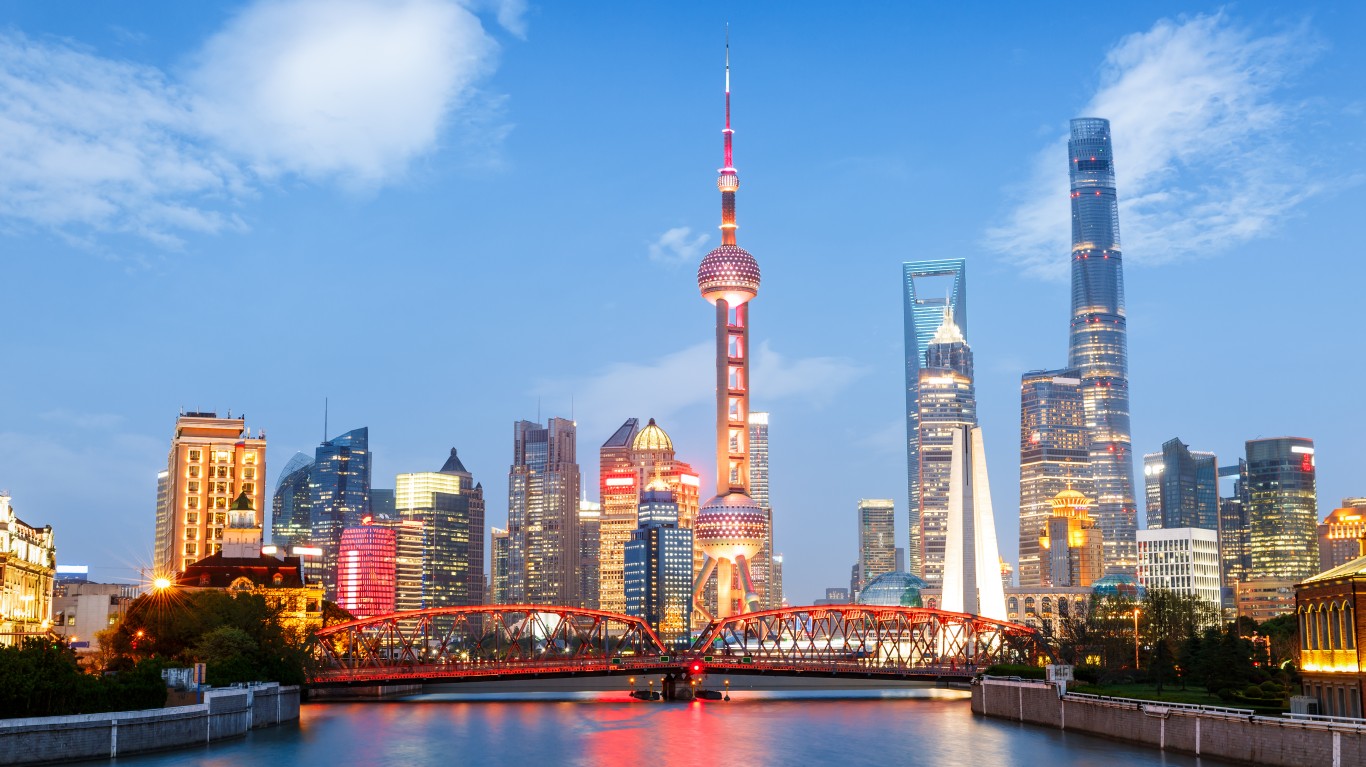Economy
This Nation's Massive Economy Could Be Heading Toward Recession

Published:
Last Updated:

China’s trade data came out today. It showed exports fell 20% in February, which one expert called a “trade recession.” Since it is the world’s second-largest country by gross domestic product, the data show that the world’s economic slowdown has started to spread aggressively.
The stunning drop took economists by surprise. Most expected a decrease in the number, but not one nearly as large. The trade war with the United States, which shows no sign of ending, likely means that the hammering of China’s economy will continue over the foreseeable future. And there are many signs that businesses in the United States that export to and import from China also have started to have sales trouble.
China has been one of the fastest-growing economies in the world, despite its size. Based on GDP, it sits in second place behind the United States. While the American economy has grown by about 2.5% in the years since the Great Recession, China’s has accelerated by 7% a year. Since exports are the engine of China’s economy, that growth could skid very quickly. Even the government expects the expansion to slow as low as 6% this year. That figure is quickly being called optimistic.
China’s GDP last year was $13.4 trillion, according to the International Monetary Fund. America’s was $20.5 trillion. At the current rate, China will move ahead of the United States in a decade. Both economies dwarf any others in the world. Japan’s ranks third based on GDP at $5.0 billion.
While the American economy is largely driven by consumer spending, China’s relies more heavily on global demand for its factory output. The output has not been one without consequences. China has several of the 25 most polluted cities in the world. The output has started to be clobbered by two factors. The first is trade tensions with the United States. The other is a general slowing in the world’s economy. The head of The European Central Bank recently said that the region was in deepening trouble economically. With GDP growth of only 1.8% last year, it would not take much for that number to go below zero.
China’s population and government are so used to rapid growth that a recession may not mean a drop in growth at all. A slowing to 5% or lower would be shocking. China’s GDP expansion has not been below that figure since 1990. At 5%, China’s job engine, which has created a middle class out of what was once a rural population, would undermine China’s new economic model. Since some experts think that China’s government fakes its GDP data, the country’s economic growth already could be well below official figures. An immediate effect might be an inability to keep its rapidly growing military, which has made it a world power beyond economics. The country was, according to 24/7 Wall St., in second place among those that spend the most on war.
Global trade can be a virtual or vicious circle. When GDP growth in most of the world is strong, China’s factories pump out hundreds of billions of dollars of exports a year. When the entire global economy slows, China’s expansion core is damaged. China may be in the “trade recession” today. That could become a full recession quickly.
The thought of burdening your family with a financial disaster is most Americans’ nightmare. However, recent studies show that over 100 million Americans still don’t have proper life insurance in the event they pass away.
Life insurance can bring peace of mind – ensuring your loved ones are safeguarded against unforeseen expenses and debts. With premiums often lower than expected and a variety of plans tailored to different life stages and health conditions, securing a policy is more accessible than ever.
A quick, no-obligation quote can provide valuable insight into what’s available and what might best suit your family’s needs. Life insurance is a simple step you can take today to help secure peace of mind for your loved ones tomorrow.
Click here to learn how to get a quote in just a few minutes.
Thank you for reading! Have some feedback for us?
Contact the 24/7 Wall St. editorial team.